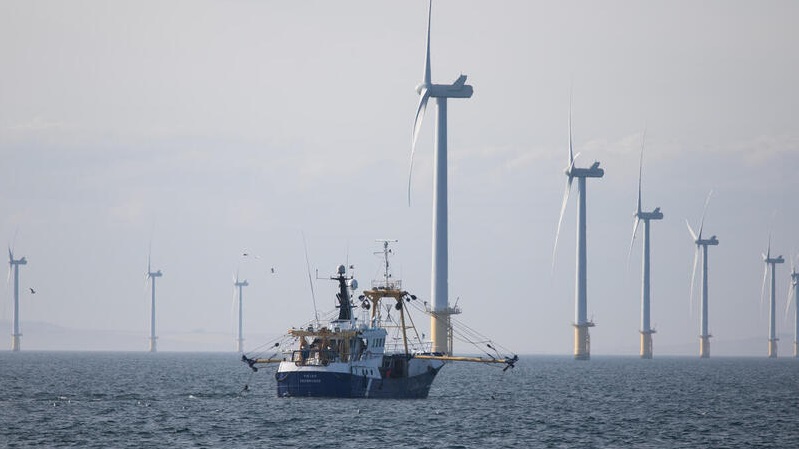UK’s 2035 zero-carbon electricity target is diplomatic pioneer, analysts say

The ruling Conservative Party has confirmed that the government plans to end production of electricity with gas relentlessly, pressuring other major economies to follow suit.
The UK will get all of its electricity from zero-carbon sources by 2035, its ruling Conservatives have said.
The 2035 target is the same commitment recently made by American Joe Biden and Canadian Justin Trudeau and analysts told Climate Home News it would increase pressure on European countries to adopt similar targets.
The announcement has received wide coverage in the British media in recent days and punters expected Prime Minister Boris Johnson to provide more details on the policy in his speech at the Conservative Party conference today.
But Johnson failed to mention the target, insisting instead that he wanted “more wind, more nuclear, less oil from abroad” in order to save money for UK consumers.
The engagement was recommended by the UK’s official climate advisory body, the Climate Change Committee, and encouraged by environmental activists.
The UK’s dependence on methane has recently been in the spotlight as prices have risen and have pushed up electricity prices, as they have across Europe.
While it has all but eliminated coal and oil from its electricity system, the UK still derives 40% of its electricity from gas.
Gas has replaced coal in power generation in the UK (Photo: International Energy Agency / Screenshot)
The government plans to replace the remaining gas with offshore wind, nuclear and other zero-carbon sources. Campaigners hope the goal will be enshrined in legislation later this year.
Chris Venables, Green Alliance politician, called the announcement a “good diplomatic indicator” a few weeks before the start of the Cop26 climate conference in Glasgow.
He told Climate Home that it was “really powerful, a really good signal, great news… it builds on what Biden says, also builds on what Trudeau says.”
india vulnerability to shocks of coal exposed in a context of increasing energy demand and prices
In line with the US and Canada’s 2035 target, the UK’s commitment puts pressure on advanced economies to follow suit.
The International Energy Agency has found that to achieve net zero emissions in the global energy sector by 2050, advanced economies would need to reach net zero electricity emissions by 2035, and the rest of the world by 2035. 2040.
Phil MacDonald, electricity analyst at think tank Ember, told Climate Home that while the EU does not have an explicit target date to decarbonize its power systems, its climate policies mean it will have to do so by here Around 2035.
Germany currently plans to continue burning coal to generate electricity until 2038 – although the Green Party, a kingmaker in the country’s coalition talks, wants to push this forward until 2030.
Macdonald said that “no one in Germany thinks they’ll be burning coal again in 2038,” but a commitment to phase-out will help put pressure on coal-dependent Eastern European countries like the Poland.
Climate news in your mailbox? register here
On Monday, UK Energy Secretary Kwasi Kwarteng gave further guidance on how the 2035 zero-carbon electricity commitment will be met – by defining limited gaps for gas.
Gas plants will be allowed to continue operating “if necessary for security of supply” or if they are equipped with technology designed to capture the plant’s carbon emissions.
Analysts told Climate Home that the narrow exceptions left very little room for gas to continue to be used to generate electricity in the UK.
MacDonald said the ‘security of supply’ warning used the same wording as the UK’s coal phase-out pledge, which was never used because the UK quickly eliminated coal-fired electricity. “As we move into the 2030s, the idea that we will continue to use gas plants will no longer be necessary,” he said.
He added that the government will have to decide “fairly quickly” whether it wants to use carbon-capture gas plants to generate electricity “because if it does, then they have to start building it now.”
Cop26 urgently needs to be specific about removing carbon in net zero lanes
And the decision to deploy carbon capture and storage technology would be costly. MacDonald said the technology has “a pretty checkered history” and that the few factories that have tried to deploy it “have been rather unsuccessful and unprofitable.”
“With the price of gas so high right now, the idea that we have this gas supply which is already very expensive and that we are going to make it more expensive with the carbon capture does not seem very attractive,” he said. -he adds.
Others were more critical. Carbon-free electricity alone will not be enough to meet the UK’s climate goal, argued Marie Brisbois, professor of energy at the University of Sussex. While welcoming the 2035 target, Brisbois said reducing electricity demand through energy efficiency was just as important.
She added that barriers to onshore wind should be removed to allow the UK to meet the target. The UK planning system makes it difficult to build onshore wind farms.
